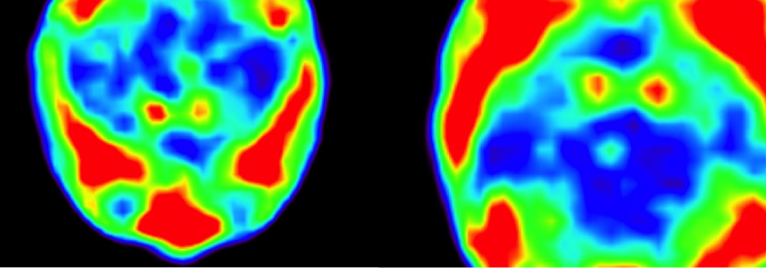
Happy about the new findings from the MS-TWIN study: PhD student Claudia Janoschka (right) and group leader Prof. Luise Klotz (Photo: Deiters-Keul)
The tremendous heterogeneity of the human population presents a major obstacle in understanding how autoimmune diseases like multiple sclerosis (MS) contribute to variations in human peripheral immune signatures. To minimize heterogeneity, SFB researchers from Munich and Muenster made use of a unique cohort of 43 monozygotic twin pairs clinically discordant for MS and searched for disease-related peripheral immune signatures in a systems biology approach covering a broad range of adaptive and innate immune populations on the protein level. Results of their work were published in the latest issue of the prestigious journal PNAS.
Despite disease discordance, the immune signatures of MS-affected and unaffected cotwins were remarkably similar. Twinship alone contributed 56% of the immune variation, whereas MS explained 1 to 2% of the immune variance. Notably, distinct traits in CD4+ effector T cell subsets emerged when Lisa Ann Gerdes, Claudia Janoschka and colleagues focused on a subgroup of twins with signs of subclinical, prodromal MS in the clinically healthy cotwin. Some of these early-disease immune traits were confirmed in a second independent cohort of untreated early relapsing-remitting MS patients. Early involvement of effector T cell subsets thus points to a key role of T cells in MS disease initiation.
Adapted from.
Gerdes LA° Janoschka C°, Eveslage M, Mannig B, Wirth T, Schulte-Mecklenbeck A, Lauks S, Glau L, Gross CC, Tolosa E, Flierl-Hecht A, Ertl-Wagner B, Barkhof F, Meuth SG, Kümpfel T, Wiendl H°, Hohlfeld R*, Klotz L*. Immune signatures of prodromal multiple sclerosis in monozygotic twins. Proc Natl Acad Sci U S A 117(35):21546-21556. (°,*= equal contribution)

















